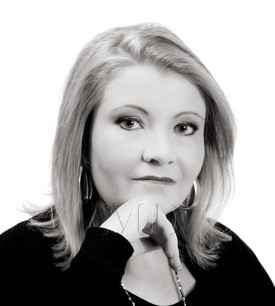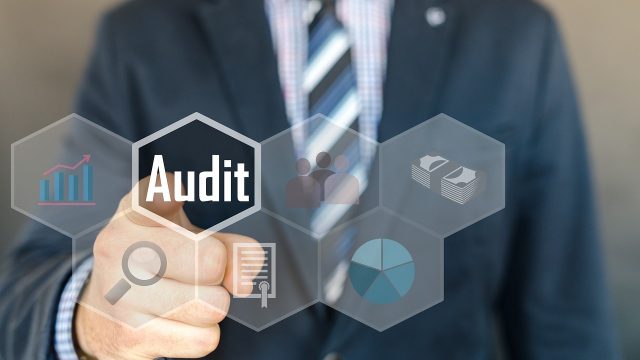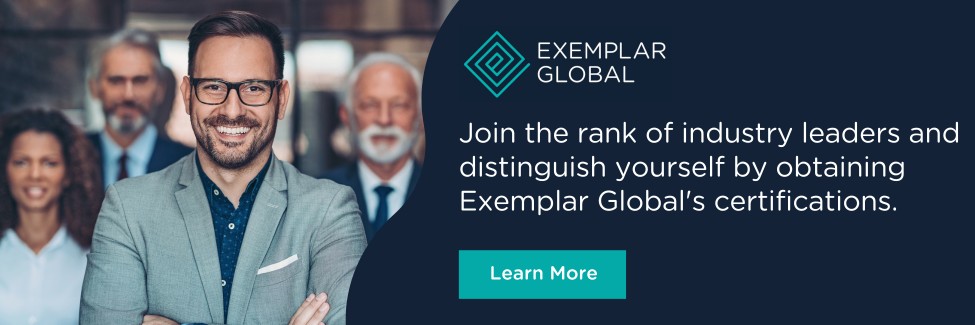Ilse Olivier is a consultant with SHE and Q Management Consultants, where she assists small and medium-sized organizations with health and safety risk assessments, environmental aspect and impact assessments, and internal and/or supplier audits and system implementation.
She is an Exemplar Global-certified auditor for ISO 9001, ISO 14001, and ISO 45001.
In this conversation, we discussed her background in the chemical industry, the importance of Exemplar Global, and the kind of support that young auditors should receive.
EXEMPLAR GLOBAL: What is your background and how did you find your way to management system auditing?
ILSE OLIVIER: I have a B-Tech Degree in Chemistry, and I first started off in the chemical industry as a laboratory manager. At the age of 28, I realized that I didn’t want to be a laboratory manager for the rest of my career, so I became involved in my employer’s internal auditing program, working on quality, environmental, and occupational health and safety audits. From there, I went for all the relevant accredited courses and then I applied for an internal auditor position within the company.
My employer at the time was a large organization consisting of about 20 individual companies in the group. I then applied for (and obtained) a safety, health, environmental, and quality (SHEQ) manager position at another company within the group. In that job, I really grew in terms of managing the existing certified management systems because, at the time, the company was registered to ISO 9001, ISO 14001, and OHSAS 18001. I became familiar with the Responsible Care Initiative, and because the chemical site on which I worked is referred to in South African legislation as a Major Hazardous Installation, there were also specific regulations regarding the control of the company. All of this gave me some very good exposure to management system standards, legislation, and industry experience.
Then, the organization for which I worked bought another company and I had the opportunity to implement a quality, environmental, and occupational health and safety management system. At that point, to tell you the truth, I got a little bored with my work as a SHEQ manager because you do the same thing year after year. So, in 2008, I started my own company. What’s funny is that I still do a lot of work for my previous employer, assisting them with things like internal audits, reviewing risk assessments, and their environmental aspects and impact register.
In 2010, I started working as contact auditor for certification bodies with PricewaterhouseCoopers, which had a South African branch that conducted certification audits. One of the requirements was that their auditors had to be certified, which is when I began my association with Exemplar Global as a quality, environmental, and health and safety associate auditor. I have gotten a lot out of my Exemplar Global certification, especially in terms of the opportunities it has helped me uncover.
EG: Can you share a bit more about what Exemplar Global has meant for you in your career, especially within your region?
IO: It has helped a lot in terms of visibility. For example, at the bottom of my email, I have the Exemplar Global logo showing my various certifications, which I think makes a big difference in terms of how I am perceived. Currently, I’m auditing for BSI South Africa, which acquired the PricewaterhouseCoopers certification business a few years ago. Of course, BSI is a very well-known certification body worldwide. I find that there are a lot of opportunities for auditors in South Africa, and the Exemplar Global certification really does open a lot of doors. It’s a definite advantage within this market.
EG: What are some of the sectors and organizations you’ve audited?
IO: I’ve performed risk assessments for Estee Lauder’s South African distribution warehouses. I also assisted Revlon South Africa with implementation of good manufacturing practices as well as standards certification. I audited for well-known mining companies in South Africa such as De Beers as a contract auditor and have conducted work for them as a consultant. I’ve done some consulting work for Atlas Copco Industrial SA, which is quite a big company specializing in compressors and power techniques. I’ve done some work for Merck MSD as well as Brother South Africa for implementing their environmental management system.
I audited several wine farms and distilleries as a contract auditor. That has been the best part of my auditing career, getting the chance to audit organizations in South Africa which are part of the wonderful winemaking industry! [laughter]
As you can see, I have experience in industries like mining, chemicals, cosmetics, and others. Luckily, because of my consulting work, a big portion of my work comes from assisting organizations to implement their management systems and eventually assisting them in getting certified through a certification body. That experience with all these different companies has helped me obtain the technical codes that I require to audit certain sectors for a certification body.
Being certified as an auditor with Exemplar Global is a great asset when I audit as well as when I assist organizations in implementing systems. Having a lot of knowledge about these industries is invaluable.
EG: A key issue in our industry is that we don’t have enough people pursuing auditing as a career. What helpful advice were you given when you were getting into this field? And in turn, what advice would you give people to encourage them to follow you into auditing?
IO: When I accepted my first SHEQ manager position, the person who had the job before me had left a month earlier, so I was left in the dark! [laughter] There was no formal handover as such. Two weeks later, we had surveillance audits for our quality, environmental, and health and safety management systems. And this was on a Major Hazardous Installation site! Of course, that included legal compliance. So, I really learned on my feet.
EG: Wow. I see.
IO: It was a tough way to learn, but in the end, it was also the best way to learn. I came to realize that the only way to do the job was to know the relevant legislation. So, over weekends and in the evenings, I studied the legislation to better understand what needed to happen in the workplace. All that extra effort assisted me a lot. Of course, I also took auditor training courses.
I’ve mostly had hands-on experience in my career, from working in chemical plants and exposure at companies for whom I consulted. Most of the time you will find me in jeans, safety shoes, a hard hat, and a reflector jacket. Being an auditor is not glamorous as such, but it’s an enjoyable position because you quickly come to understand how little you know and how specialized each industry is to which you are exposed.
I learn best by visiting facilities in various industries. It has made me realize that you may know an organization’s system, the applicable standards, and how to audit them, but in terms of specific technical engineering or production processes, there’s something you can learn every day. That’s been invaluable to me. As mentioned, I’ve audited uranium mines, zinc mines, diamond mines, cosmetic industries, pharmaceutical industries, tanneries, paper mills, and more, from which I gained invaluable knowledge and experience.
Learning styles are important. I remember when I started taking training courses; the first one I did was an ISO 9001 implementation course. After completing it, I still didn’t know how to implement an ISO 9001 management system, because I wasn’t taught how to apply the requirements of the standard in a real-world company. I learned that by working in an organization to understand how the standard applied to their various processes.
All of this is a way of saying that, for me, one-on-one mentorship is quite a big thing to get someone to really understand the requirements of a standard and what it means to implement it at an organization. I think that’s invaluable. But I don’t think a lot of people have that privilege to have one-on-one mentorship in the positions that they work in currently.
EG: It did not used to be that way. In the past most large organizations had mentorship and apprentice programs where a young person would come in and learn from their elders. Exemplar Global can perhaps partially fill that gap by helping people, especially those that are just beginning in this field, get in touch with the community and pick the brains of more experienced auditors at other organizations. Would something like that have been helpful to you early in your career?
IO: Most definitely! It would have been great for me to have someone to contact and say, “Listen, what can I do here? What must I know? What are the critical things that I need to look out for?” It’s especially important to connect with someone who is in your industry.
For example, as part of my qualification in South Africa, I also obtained a diploma in Analytical Chemistry. After that, I worked in the industry for six months. In my opinion, if young people can work with someone who has industry experience, they will start to really understand what it is all about. If it wasn’t for that, I wouldn’t have been able to keep my company going since 2008, including through COVID. I think that’s a huge thing.


